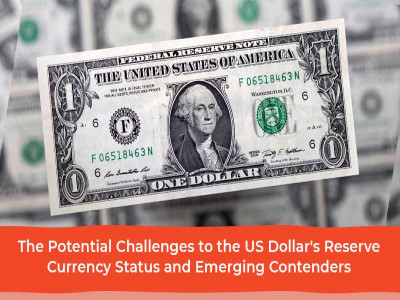
Headlines Can Stress You Out – Here’s How
It's not uncommon for people to feel stressed out when reading news headlines, especially if the headlines focus on negative or upsetting events. With the constant influx of news stories through social media, news websites, and other sources, it can be difficult to escape from the negative and stressful headlines that can impact your mental health.
Headline stress
Globally, the phenomenon of ‘Headline Stress Disorder’ has been around for a very long time. It is a highly emotional response to continued news reports of anxiety-inducing crises. It was evident in the United States following the Ebola outbreak, and in Nigeria, with the Monkeypox virus outbreak. China witnessed the same disorder with the onset of the COVID-19 pandemic. This was the same time when India saw the repercussions of ‘Headline Stress Disorder’ at its peak. Continued updates on the spread of the virus, the extent and outcomes of the havoc wrecked by it, and vivid doomsday predictions, cast a spell of mental anguish and gloom, for most people tuning in.
Here are some reasons why news headlines can stress you out:
The media tends to focus on negative events: News organizations often prioritize stories that are shocking, sensational, or tragic, which can lead to a skewed perspective on the world. When you're constantly bombarded with stories about violence, disasters, and other negative events, it's easy to start feeling anxious and stressed.
News can be overwhelming: With so many news stories coming at you from different sources, it can be hard to process all the information. This can lead to feelings of overwhelm, which can contribute to stress and anxiety.
News can make you feel powerless: When you read about global crises, political conflicts, or other issues that seem out of your control, it can be easy to feel helpless and hopeless. This feeling of powerlessness can lead to stress and anxiety.
News can trigger trauma: If you've experienced a traumatic event in the past, reading news stories that are similar to your own experience can be triggering. This can cause you to feel anxious, stressed, or even traumatized all over again.
Identifying the Symptoms
Reading the headlines of the newspaper or listening to the news on TV or other devices induces identifiable symptoms of stress which include:
· Restlessness
· Fear
· Overthinking
· Anxiety
· Irritability
· Tremulousness
· Panic/Catastrophic thinking
· Dry mouth
· Stomach upsets
· Crying spells
· Decreased sleep and appetite
These symptoms can further decrease our ability to be attentive and focused in our work at hand, thereby decreasing work output and efficiency! When stress levels build up, it tends to cast its shadow of dark despair upon our relationships, our self-esteem, and our self-confidence, impacting our life & lifestyle negatively, daily.
So, what can you do to reduce stress from news headlines?
Limit your exposure: While it's important to stay informed, you don't need to be constantly plugged into the news cycle. Consider setting limits on how often you check the news or social media, or take breaks from it altogether. It is preferable to follow the news in the earlier half of the day and keep away from media histrionics, during the later part of the day, this helps to ensure better sleep too.
Choose your sources wisely: Not all news sources are created equal. Look for sources that prioritize accurate reporting and balance their coverage with positive news stories.
Stay Positive: Paying attention to happy news, acknowledging more sunshine stories, and spreading the same amongst our circles of family & friends, makes a positive difference.
Practice self-care: Make sure you're taking care of yourself physically and mentally. Engage in activities that help you relax and unwind, such as meditation, exercise, or spending time with loved ones.
Seek support: If you're feeling overwhelmed by news headlines or struggling with stress and anxiety, don't hesitate to reach out for help. Talk to a friend, family member, or mental health professional about your concerns.
It is okay to take a break from the news when it becomes too much. Prioritize your mental health and well-being, and take steps to reduce stress from news headlines.
And always remember, if none of this helps as much as it should, we must go ahead and contact the nearest psychologist to have a healthy conversation about our perceived stress and its effects, without shame or delay, because a stitch in time saves nine.
Disclaimer: The opinions expressed in this article are those of the author's. They do not purport to reflect the opinions or views of The Critical Script or its editor.

Newsletter!!!
Subscribe to our weekly Newsletter and stay tuned.

















Related Comments